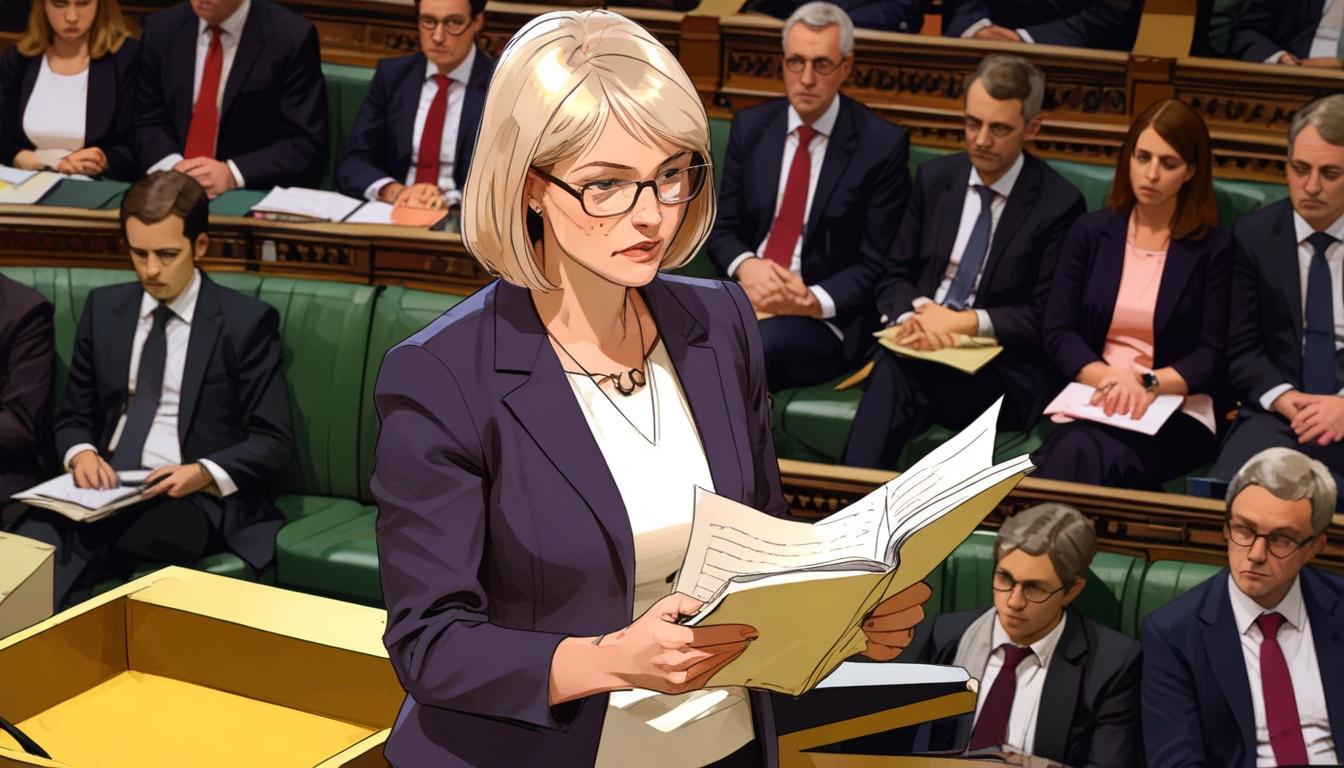In a recent parliamentary debate focused on the enduring ramifications of Brexit, Liberal Democrat MP Rachel Gilmour engaged her colleagues in a poignant and symbolic gesture by reading excerpts from the preamble of the Maastricht Treaty in French. Her action, taking place ahead of an impending joint summit, served not just as a theatrical flourish but as a serious critique of the United Kingdom's decision to leave the European Union.
Gilmour, representing Tiverton and Minehead, used her platform to express profound concerns regarding the implications of Brexit on the UK's economic landscape. She stated, "Despite the turbulence of Brexit, the EU remains our largest trading partner," highlighting a critical point that resonates with many analysts who warn that leaving the bloc may yield significant economic self-harm. Her comments reflect a growing sentiment among various sectors that the shift away from the EU could hinder trade, buffeting the UK economy as it grapples with new complexities stemming from the separation.
The MP's comments about the perceived increase in Brussels' bureaucracy starkly contrasted with the fervent promises made by proponents of Brexit, who insisted that leaving the EU would streamline regulations and reduce red tape. Gilmour argued, “Grand promises of scaling back of Brussels’ bureaucracy were made but precisely the opposite has occurred,” a sentiment echoed by numerous business leaders who have voiced frustrations over rising complexities in trade due to new regulations and border checks.
This debate comes at a time when the future of UK-EU relations remains tenuous. As negotiations continue on a range of issues from trade agreements to immigration policies, the divide between pro- and anti-Brexit factions remains stark. The Liberal Democrats, traditionally supportive of European integration, advocate for closer ties with the EU, countering narratives that suggest a hard Brexit could lead to greater economic independence. Instead, they propose that maintaining strong connections with European partners is essential for Britain's economic resilience.
The backdrop of Gilmour's speech resonates with broader discussions about the long-term impacts of Brexit. Surveys and studies reveal that many UK businesses continue to face challenges, stressing the necessity for political leaders to reassess the approach toward EU relations in the post-Brexit landscape. Gilmour’s remarks, underscored by a linguistic nod to the EU's foundational texts, serve as a reminder of the cultural and economic ties that still bind the UK to the continent, regardless of its political disengagement.
In a broader context, Gilmour's assertive stance reflects the ongoing debates regarding sovereignty, economic strategy, and the role of international partnerships in an increasingly interconnected world. As the UK forges ahead into uncertain territory, voices like hers may play a crucial role in shaping the narrative and policy framework around the complexities of Brexit.
Reference Map
Source: Noah Wire Services
